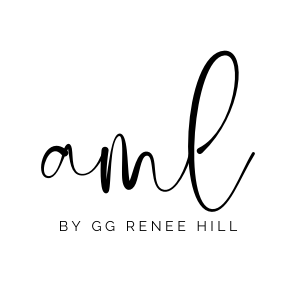6 tips for making progress on your creative goals
If you have creative dreams and goals but struggle to act on them consistently…
If you beat yourself up for losing focus, avoiding necessary tasks, and feeling overwhelmed…
If you’re a dreamer who enjoys brainstorming but struggles with fine-tuning your ideas…
If you struggle with tunnel vision and transitioning between tasks…
If you’re weary from the negative self-talk that often comes with these things…
I’m here to tell you that you’re not lazy or broken and your ideas have value! YOU need your art, and THE WORLD needs your art. Don’t give up. Instead of asking yourself, ‘What’s wrong with me?’ start asking yourself ‘What do I need?’ and pay attention as your mind, body, and soul answer you back. Here are six tips for making progress on your creative goals, especially if you struggle with time, energy, and attention management:
Stop telling yourself that what you want is too hard, impossible, or out of reach.
What if the reward is in the process and not the end result? When you think about the end result, you see steep learning curves, uncertainties and obstacles and it all seems like more than you can handle. But if you focus on one step at a time instead of the end result, this is how you build courage and confidence. Taking action, even small baby steps, provides you with information that reveals unexpected insights and demystifies the process.
Stop comparing your pace to other people.
Sometimes you will make the most progress by slowing down. Question your attachment to speed and any beliefs you have that say faster and bigger is better. Your pace is an expression of your authenticity, and you will thrive when you do the work to find your own rhythms.
Beware of black and white thinking.
Focusing solely on what you want to accomplish with an all-or-nothing attitude triggers desperation and fear-driven thoughts, beliefs, and actions. For example, believing that all failure is bad will keep you from learning and building character. Believing that all your assumptions are true will prevent you from making new connections that will help you expand. Embrace nuance and layers by pausing and asking yourself what else could be true.
When working on creative projects, keep a process journal for each one and update it regularly.
A process journal is simply a log of your thoughts to document your journey as you work on a particular project. If you’re working on a book, each time you work on it you simply write the date and jot down your focus for that session. You an keep a dedicated process journal for any life project. Each time you work on this project, you write down how it went, where you’re stopping, what you’ll work on next time, and how you feel about all of it. This will make a huge difference if you normally struggle with transitions and are working on multiple things at a time.
Set boundaries to allow time for all stages of the creative process including observation, rest, play, and inspired work.
The creative process involves more than just getting an idea and acting on it. Your creativity needs what it needs. When you honor your physical, mental, emotional, and spiritual needs, you can work with your natural flow and not against it.
Use community for accountability and co-regulation to help you focus.
Don’t underestimate the power of coworking to help you calm your nervous system and get tasks done. If you struggle with structure, distractions, and transitions between tasks, seeing your peers working along with you provides a sense of connection that increases your motivation and commitment.
Check out the following coaching sessions for more insights on self-discovery and creative life.
